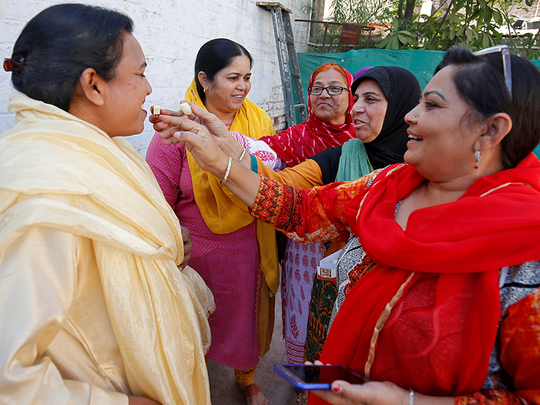
India's powerful lower house of parliament on Thursday approved a bill making the practice of instant divorce illegal and punishable with up to three years imprisonment for offending husbands.
The bill came months after India's Supreme Court ruled that the Muslim practice that allows men to instantly divorce their wives was unconstitutional.
Several opposition parties criticized Prime Minister Narendra Modi's government for not discussing the legislation with them before introducing it in Parliament on Thursday. The approved bill will now go to the upper house of parliament, where it needs approval before it becomes law.
More than 20 Muslim countries, including neighbouring Pakistan and Bangladesh, have banned the practice.
But in India, the practice has continued with the protection of laws that allow Muslim, Christian and Hindu communities to follow religious law in matters like marriage, divorce, inheritance and adoption.
While most Hindu personal laws have been overhauled and codified over the years, Muslim laws have been left to religious authorities and left largely untouched.
Women's rights activist Zakia Soman said it was a much needed law for Muslim women, who have suffered legal discrimination with Hindu and Christian women enjoying protection under separate laws.
Most of the 170 million Muslims in India are Sunnis governed by Muslim Personal Law for family matters and disputes. Those laws include allowing men to divorce their wives by simply uttering the Arabic word "talaq," or divorce, three times - and not necessarily consecutively, but at any time, and by any medium, including telephone, text message or social media post.
Kamal Farooqi, a leader representing the All India Muslim Personal Board, a top grouping of Islamic organisations, said the organization was opposed to the practice of instant divorce but argued against the government or courts interfering in religious laws.
He said the board was in favour of leaving the divorce issue to the Muslim community to tackle. But several progressive Muslim activists decried the board's position.












